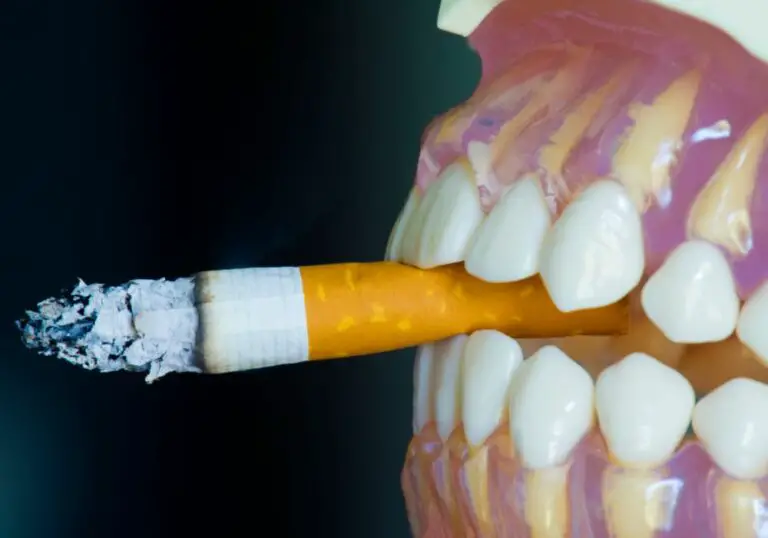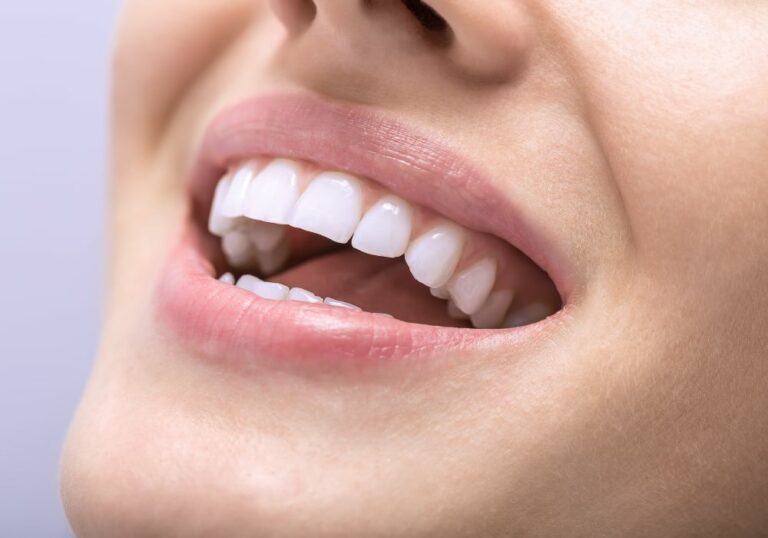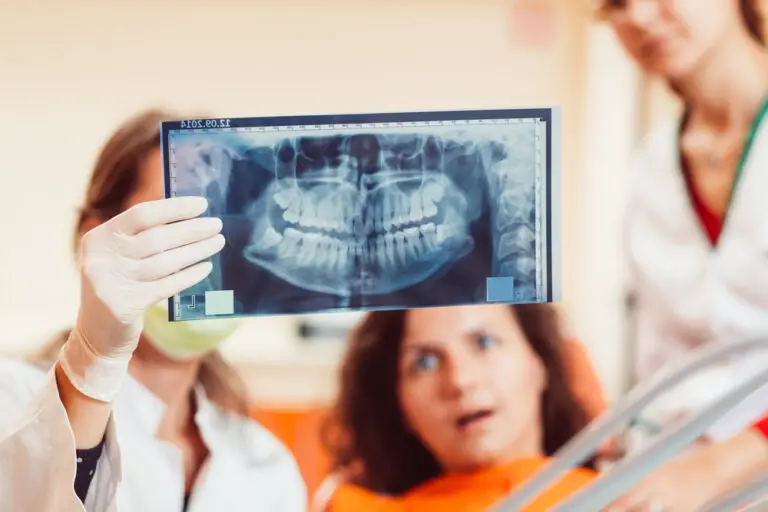Are you experiencing tooth pain during pregnancy? You’re not alone. Many women experience dental problems during pregnancy due to hormonal changes, increased blood flow, and other factors. The good news is that there are ways to alleviate tooth pain and maintain good oral health during pregnancy.
Firstly, it’s important to maintain a healthy oral hygiene routine. Brush your teeth twice a day with a fluoride toothpaste and floss daily to remove plaque and prevent cavities. If you’re experiencing morning sickness and vomiting, rinse your mouth with water or a fluoride mouthwash to help neutralize the acid and prevent damage to your teeth. Additionally, try to avoid sugary and acidic foods and drinks, which can increase the risk of tooth decay and sensitivity.
If you’re experiencing tooth pain, there are several home remedies that can provide relief. Swishing warm, salty water around in your mouth can help reduce inflammation and alleviate pain. Applying a cold compress to your cheek can also help reduce swelling and discomfort. Natural remedies such as clove oil or garlic can also be effective in relieving tooth pain. However, it’s important to consult with your dentist or healthcare provider before using any home remedies or over-the-counter pain medications during pregnancy.
Understanding Tooth Pain During Pregnancy

Experiencing tooth pain during pregnancy is not uncommon. In fact, it is estimated that up to 75% of pregnant women experience some form of dental issue. Tooth pain can be caused by a variety of factors, including changes in hormones, poor oral hygiene, and increased blood flow to the gums.
One common cause of tooth pain during pregnancy is gingivitis, which is a mild form of gum disease. Pregnancy hormones can cause the gums to become inflamed and more susceptible to infection. This can lead to red, swollen, and bleeding gums, as well as tooth pain.
Another cause of tooth pain during pregnancy is tooth decay. Pregnancy can cause changes in your diet and oral hygiene habits, which can lead to an increased risk of cavities. Additionally, morning sickness can cause stomach acid to erode tooth enamel, making teeth more vulnerable to decay.
It is important to note that tooth pain during pregnancy should not be ignored. Untreated dental issues can lead to more serious problems, such as infections and preterm labor. It is important to maintain good oral hygiene habits, including brushing twice a day, flossing daily, and visiting your dentist regularly.
If you are experiencing tooth pain during pregnancy, there are several things you can do to alleviate your symptoms. These include:
- Using a soft-bristled toothbrush to avoid further irritation to your gums
- Rinsing your mouth with warm salt water to reduce inflammation
- Applying a cold compress to your cheek to numb the pain
- Using over-the-counter pain relievers, such as acetaminophen, as directed by your doctor
In the next section, we will discuss some additional steps you can take to prevent tooth pain during pregnancy.
Common Causes of Tooth Pain in Pregnancy
During pregnancy, you may experience tooth pain due to various reasons. Some of the most common causes of tooth pain during pregnancy are:
Hormonal Changes
Your body undergoes various hormonal changes during pregnancy, which can affect your dental health. The increased level of estrogen and progesterone can cause your gums to become more sensitive and swollen, leading to gum disease and tooth pain.
Increased Blood Flow
Pregnancy causes an increase in blood flow throughout your body, including your gums. This increased blood flow can cause your gums to become more sensitive and swollen, leading to tooth pain.
Acid Reflux
Acid reflux is a common problem during pregnancy, which can cause tooth pain. The acid from your stomach can erode your tooth enamel, leading to tooth sensitivity and pain.
It is essential to maintain good oral hygiene during pregnancy to prevent tooth pain and other dental problems. Brush your teeth twice a day with a fluoride toothpaste and floss daily. Also, avoid sugary and acidic foods and drinks, which can damage your teeth and cause tooth pain. If you experience severe tooth pain during pregnancy, consult your dentist for proper treatment.
Preventive Measures for Tooth Pain

If you are pregnant, you may be wondering how to prevent tooth pain. Here are some preventive measures that can help you maintain good oral health and avoid tooth pain during pregnancy.
Regular Dental Checkups
Regular dental checkups are essential for maintaining good oral health. During pregnancy, it is especially important to visit your dentist regularly. Your dentist can check for any signs of tooth decay or gum disease and provide treatment if necessary. It is recommended that pregnant women visit their dentist every six months.
Proper Oral Hygiene
Proper oral hygiene is crucial for preventing tooth pain and maintaining good oral health. During pregnancy, it is important to brush your teeth twice a day with fluoride toothpaste and floss daily. If you experience morning sickness, rinse your mouth with water or mouthwash after vomiting to help prevent tooth decay.
Healthy Diet
Eating a healthy diet is important for your overall health and can also help prevent tooth pain during pregnancy. Be sure to eat a balanced diet that includes plenty of fruits, vegetables, and whole grains. Avoid sugary and acidic foods and drinks, which can increase your risk of tooth decay and gum disease.
By following these preventive measures, you can maintain good oral health and prevent tooth pain during pregnancy. Remember to schedule regular dental checkups, practice proper oral hygiene, and eat a healthy diet.
Safe Remedies for Tooth Pain
If you’re pregnant and experiencing tooth pain, you may be hesitant to take any medication. Fortunately, there are safe remedies you can try at home to alleviate your discomfort. Here are some options to consider:
Cold Compress
A cold compress can help reduce swelling and numb the area around the affected tooth. Simply wrap a few ice cubes in a towel and hold it against your cheek for 15-20 minutes at a time. You can repeat this process several times a day as needed.
Saline Rinse
A saline rinse can help clean the area around the affected tooth and reduce inflammation. To make a saline rinse, mix 1/2 teaspoon of salt into 8 ounces of warm water. Swish the solution around your mouth for 30 seconds before spitting it out. You can repeat this process several times a day as needed.
Clove Oil
Clove oil has natural numbing properties and can be effective in reducing tooth pain. You can apply a small amount of clove oil directly to the affected tooth using a cotton swab. Alternatively, you can mix a few drops of clove oil with a carrier oil, such as coconut oil, and apply the mixture to the affected area. Be sure to use only a small amount of clove oil, as too much can be harmful.
Remember, these remedies are intended to provide temporary relief. It’s important to see your dentist if you’re experiencing tooth pain during pregnancy, as untreated dental issues can lead to more serious problems.
When to Seek Professional Help

If you are experiencing tooth pain during pregnancy, it is important to take care of your dental health. While there are some home remedies and over-the-counter medications that can help alleviate pain, there are times when it is necessary to seek professional help. Here are some signs that you should contact your dentist or doctor:
Severe Pain
If you are experiencing severe tooth pain that is not relieved by over-the-counter medications or home remedies, it is important to seek professional help. Severe pain can be a sign of a more serious dental issue, such as an infection or abscess.
Prolonged Discomfort
If you have been experiencing tooth pain for more than a few days, it is important to seek professional help. Prolonged discomfort can be a sign of a more serious dental issue, such as a cavity or gum disease.
Signs of Infection
If you are experiencing tooth pain along with other symptoms such as fever, swelling, or redness, it is important to seek professional help. These symptoms can be a sign of an infection, which can be harmful to both you and your baby.
Your dentist or doctor will be able to diagnose the cause of your tooth pain and provide you with the appropriate treatment. They may recommend a dental procedure such as a filling or root canal, or prescribe medication to relieve your pain. It is important to follow their recommendations and take care of your dental health during pregnancy.
Frequently Asked Questions
What are some safe remedies for tooth pain during pregnancy?
If you’re experiencing tooth pain during pregnancy, there are a few safe remedies you can try at home. Swishing warm, salty water around in your mouth can help reduce inflammation and alleviate pain. Applying a cold compress to your cheek can also help ease pain and swelling. Additionally, using a soft-bristled toothbrush and brushing gently can help prevent further irritation.
Is it safe to take paracetamol for tooth pain during pregnancy?
Paracetamol is generally considered safe to take during pregnancy, but it’s always best to check with your doctor first. They can advise you on the best course of action based on your individual circumstances.
How can I relieve wisdom tooth pain during pregnancy?
Wisdom tooth pain can be particularly uncomfortable during pregnancy. Swishing warm, salty water around in your mouth can help reduce inflammation and alleviate pain. Applying a cold compress to your cheek can also help ease pain and swelling. Additionally, using a soft-bristled toothbrush and brushing gently can help prevent further irritation. If the pain persists, talk to your dentist about other treatment options.
When does tooth sensitivity typically start in pregnancy?
Tooth sensitivity can start at any time during pregnancy, but it’s most common during the second trimester. Hormonal changes during pregnancy can cause increased blood flow to the gums, which can make them more sensitive.
What can I do to alleviate tooth pain in the third trimester?
If you’re experiencing tooth pain in the third trimester, it’s important to talk to your dentist as soon as possible. They can advise you on the best course of action based on your individual circumstances. In the meantime, you can try swishing warm, salty water around in your mouth to reduce inflammation and alleviate pain.
How can I sleep comfortably with a toothache while pregnant?
Sleeping with a toothache can be challenging during pregnancy. Elevating your head with an extra pillow can help reduce swelling and alleviate pain. Additionally, applying a cold compress to your cheek before bed can help ease pain and swelling. If the pain persists, talk to your dentist about other treatment options.







